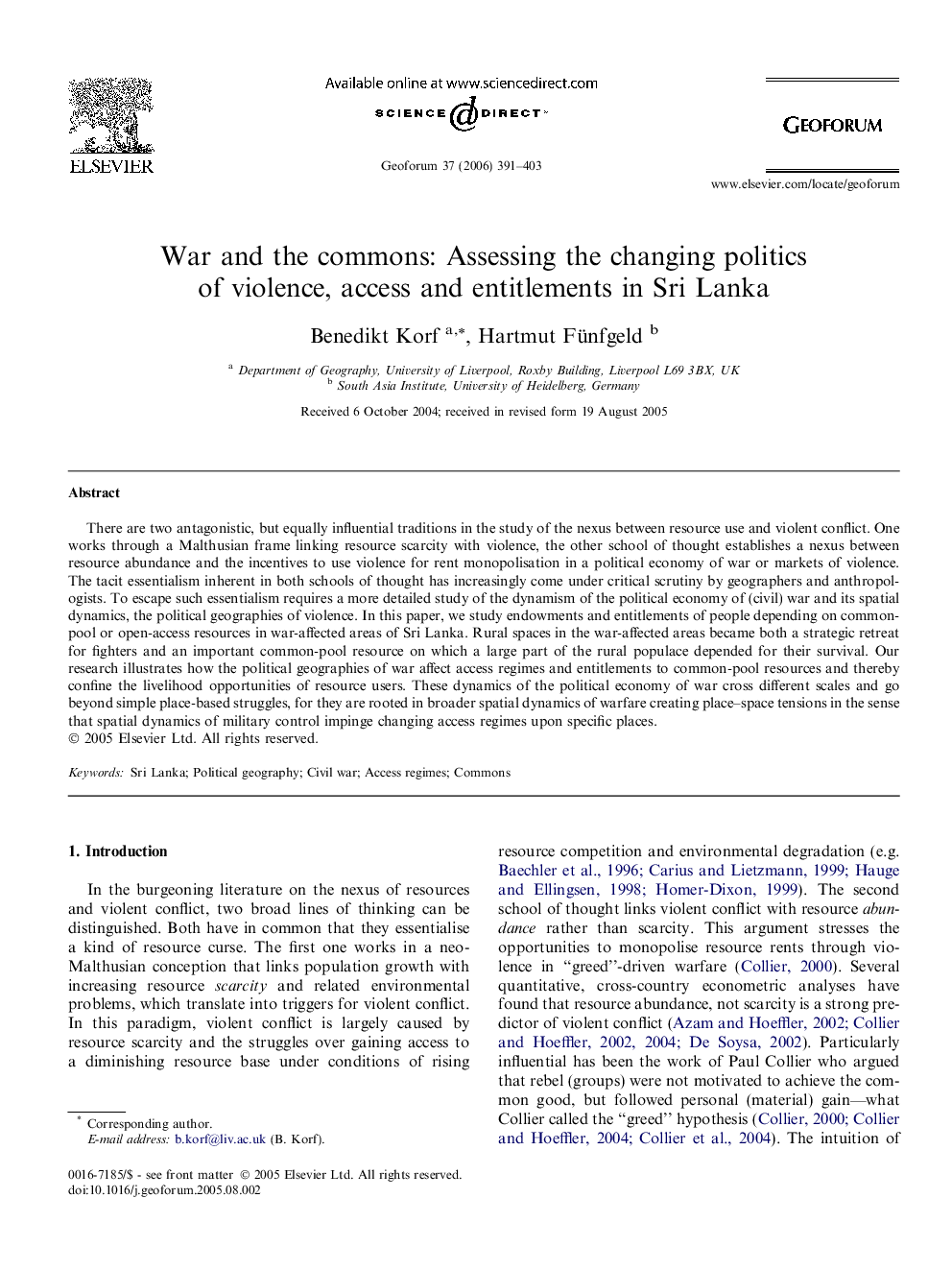| Article ID | Journal | Published Year | Pages | File Type |
|---|---|---|---|---|
| 5075212 | Geoforum | 2006 | 13 Pages |
Abstract
There are two antagonistic, but equally influential traditions in the study of the nexus between resource use and violent conflict. One works through a Malthusian frame linking resource scarcity with violence, the other school of thought establishes a nexus between resource abundance and the incentives to use violence for rent monopolisation in a political economy of war or markets of violence. The tacit essentialism inherent in both schools of thought has increasingly come under critical scrutiny by geographers and anthropologists. To escape such essentialism requires a more detailed study of the dynamism of the political economy of (civil) war and its spatial dynamics, the political geographies of violence. In this paper, we study endowments and entitlements of people depending on common-pool or open-access resources in war-affected areas of Sri Lanka. Rural spaces in the war-affected areas became both a strategic retreat for fighters and an important common-pool resource on which a large part of the rural populace depended for their survival. Our research illustrates how the political geographies of war affect access regimes and entitlements to common-pool resources and thereby confine the livelihood opportunities of resource users. These dynamics of the political economy of war cross different scales and go beyond simple place-based struggles, for they are rooted in broader spatial dynamics of warfare creating place-space tensions in the sense that spatial dynamics of military control impinge changing access regimes upon specific places.
Related Topics
Social Sciences and Humanities
Economics, Econometrics and Finance
Economics and Econometrics
Authors
Benedikt Korf, Hartmut Fünfgeld,
